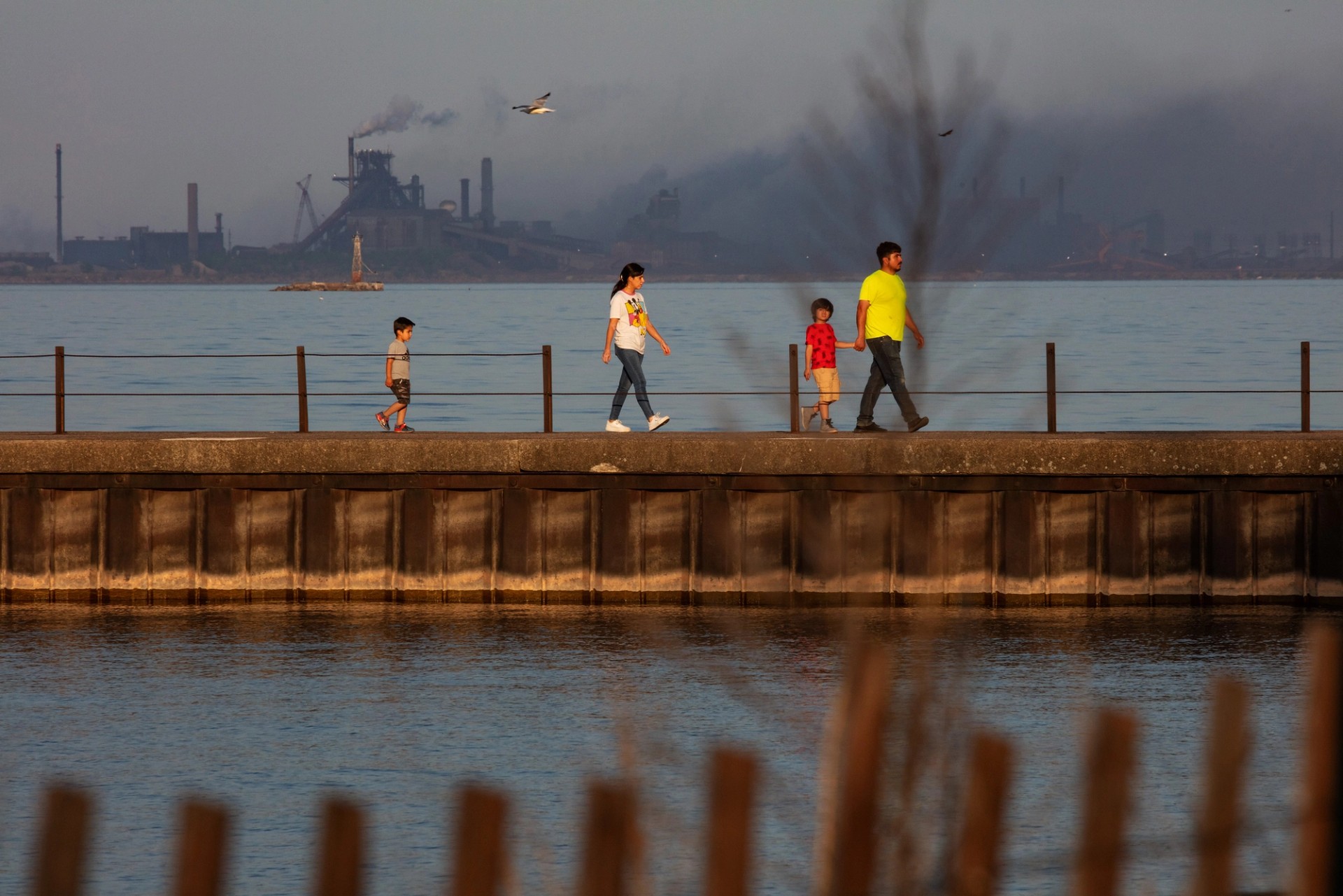New Report Unveils Alarming Health Costs of U.S. Coal-Based Steelmaking
Estimated $13.2 Billion in Health Costs, 892 Premature Deaths, and Almost 100,000 Lost School and Work Days Annually from just 17 Facilities
Industrious Labs

October 21, 2024
Press Contact: Ariana Criste, Ariana@industriouslabs.org
New Report Unveils Alarming Health Costs of U.S. Coal-Based Steelmaking
Estimated $13.2 Billion in Health Costs, 892 Premature Deaths, and Almost 100,000 Lost School and Work Days Annually from just 17 Facilities
Washington, D.C. – A new report from Industrious Labs offers the first facility-by-facility breakdown of toxic emissions from U.S. coal-based steel and coke plants, exposing the staggering human toll: up to an estimated 892 premature deaths, 250,500 cases of asthma symptoms, and $13.2 billion in health costs every year associated with pollution from just 17 facilities in Indiana, Ohio, Pennsylvania, Illinois, Michigan, and Virginia. These health costs are associated with the cost of symptom management, medical care, and the societal costs of premature deaths. The report used self-reported industry data collected by the U.S. Environmental Protection Agency (EPA) and EPA's CO–Benefits Risk Assessment (COBRA) screening model to conduct the analysis.
“Steel communities have been sounding the alarm on harmful air pollution for years, and this report quantifies just how devastating and far-reaching the consequences are,” said Hilary Lewis, Steel Director at Industrious Labs. “The EPA has consistently failed to safeguard the health of these communities from the dangers of coal-based steelmaking. It’s time for stronger regulations that recognize the opportunity of cleaner steelmaking technologies and tougher enforcement of penalties on polluters to truly protect public health.”
Steel is essential for building modern infrastructure like cars, bridges, and buildings, but the pollution from its production is not. At the heart of the industry’s pollution is coke, a coal product used in large quantities to transform iron ore into steel. This process releases vast amounts of toxic air pollutants, including nitrogen oxides (NOx), sulfur dioxide (SO2), particulate matter (PM2.5), and hazardous chemicals like benzene and lead. In 2020 alone, U.S. steel and coke plants reported 24,400 tons of nitrogen oxides (NOx), 32,000 tons of sulfur dioxide (SO2), 9,000 tons of fine particulate matter (PM2.5), 177,000 tons of carbon monoxide (CO), and 7 tons of lead (Pb)—pollution that contributes to respiratory illnesses, cardiovascular diseases, and premature deaths in the surrounding communities.
"The steel industry’s impacts aren’t just a statistic in Northwest Indiana; they are personal. It’s children missing school because of their asthma, families overwhelmed by hospital bills, and neighbors we’ve lost far too soon to cancer," said Dorreen Carey, President, Gary Advocates for Responsible Development (GARD). “Our community deserves clean air and a future in which Gary Works and the region’s other steel mills replace their polluting facilities with cleaner, greener steelmaking technology.”
The report found that the toxic emissions from coke facilities, where coal is refined into coke for steelmaking, are especially harmful. These plants release toxic pollutants like benzene and lead, which are linked to long-term health issues, including cancer, respiratory diseases, and heart problems. According to the report, residents living near these plants—who are often low-income and disproportionately people of color—face cancer risks 26% higher than the national average due to exposure to air toxics.
“Coke facilities like EES Coke in Detroit are exposing nearby communities to dangerous levels of sulfur dioxide and other toxic chemicals, putting residents’ health in jeopardy,” said Nick Leonard, Executive Director of the Great Lakes Environmental Law Center. “It’s time for companies like DTE to be held accountable for the damage they’ve caused. We must take immediate, meaningful action to protect the health and well-being of these communities.”
While transitioning away from coal-based steelmaking is the only long-term solution to address the steel industry’s health and climate impacts, immediate action is also required to reduce the harms being caused now. The report calls on the U.S. Environmental Protection Agency and state agencies to hold polluters accountable by enforcing and strengthening environmental laws and emission limits.
"Far too many families in Braddock and the Mon Valley are struggling with asthma, cancer, and chronic illnesses due to pollution from the steel industry," said Patrick Campbell, Executive Director of the Group Against Smog & Pollution. "We must prioritize community health by enforcing stronger pollution controls and transitioning to cleaner, modern steelmaking technologies that will safeguard both our well-being and the environment."
Transitioning to cleaner steelmaking technologies, like green hydrogen-powered direct reduced iron (DRI) and electric arc furnaces (EAFs), would eliminate the need for coal and slash the 38.99 million metric tons of CO2e these facilities emit annually — equivalent to burning 214,452 railcars of coal. With historic tax incentives and federal funding available, steel companies have a unique opportunity to invest in green hydrogen and other clean technologies. For example, Cleveland-Cliffs' Middletown Works in Ohio is set to transition from coal-based to hydrogen-ready steelmaking, demonstrating how federal funding can help jumpstart this transition.
"For decades, communities near steel and coke plants have been forced to choose between their health and good jobs, enduring toxic pollution, chronic illnesses, and premature deaths," said Yong Kwon, Senior Policy Advisor in the Industrial Transformation Campaign at the Sierra Club. "By embracing cleaner technologies, we can prevent harmful pollution while also securing good jobs in the growing green economy, ensuring that no one has to choose between a healthy environment and a strong livelihood."
###
About Industrious Labs:
Industrious Labs is focused on scaling campaigns and building a movement to clean up heavy industry through network and capacity building, research and analysis, data-driven campaigns, and sharp communications.